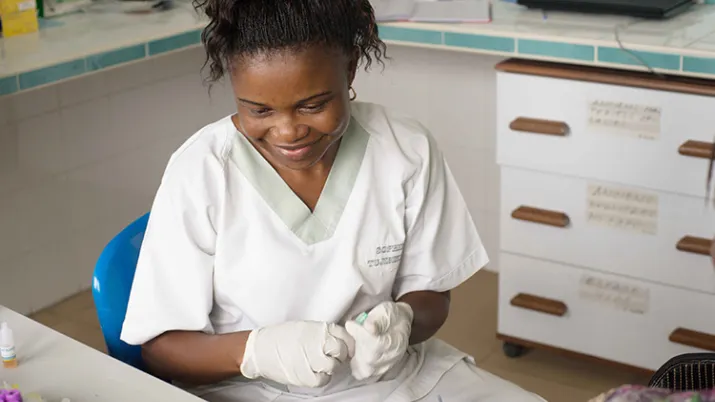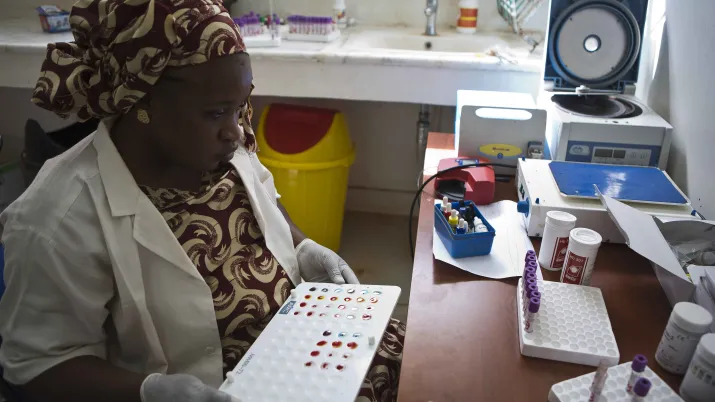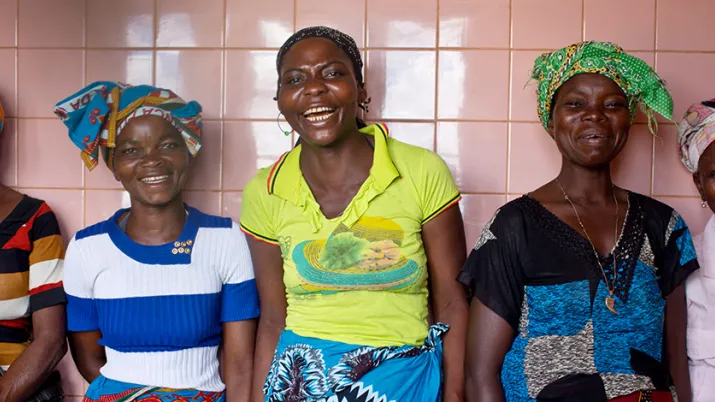Share the page
Managing public health emergencies - Our work and impact
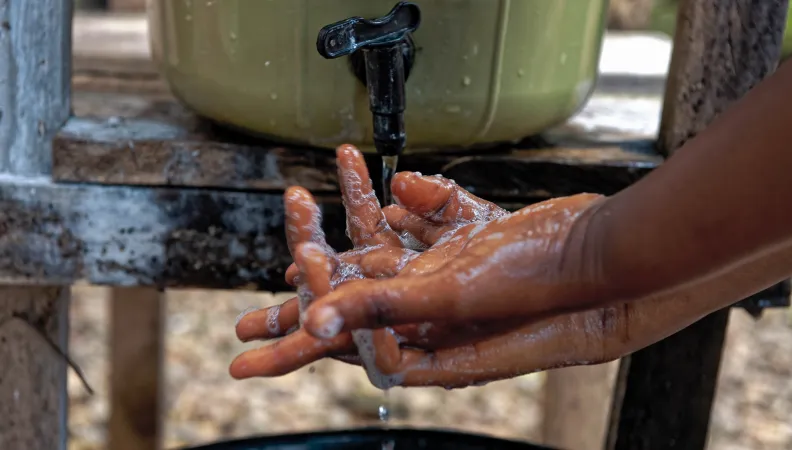
Health crises have become increasingly frequent, systemic and complex, requiring integrated, coordinated, long-term responses. International cooperation plays a key role in preventing, preparing for and responding to health emergencies, by durably strengthening healthcare systems in the face of crises, and anticipating emerging health threats and underlying causes such as climate change, deforestation, global mobility and rapid urbanisation.
As France’s international development cooperation agency, our mission is to help build healthcare systems that are prepared for crises and can respond to them quickly. To achieve this, we support our partner countries and organisations in anticipating risks, setting up preparedness and coordination mechanisms, and strengthening laboratories, epidemiological surveillance and institutional capacities.
We also embrace “One Health”, a multifaceted approach that recognises the interconnectedness of human, animal and environmental health. This approach is useful in particular in fighting the outbreak of zoonotic diseases and antimicrobial resistance. We help our partners build effective responses to crises by improving the quality, regulation and fair access to healthcare products, while promoting health sovereignty and long-term resilience.
92% of States reported disruptions to almost half of the monitored services in their health systems
The Covid-19 pandemic had a significant impact on all health services. According to the WHO, 92% of Member States reported disruptions to almost half of the monitored services in their health systems. For example, tests and access to treatment for tuberculosis declined significantly following the outbreak of the Covid-19 pandemic. Mortality from tuberculosis is on the rise again, jeopardising the progress made towards eradicating the disease by 2035.
Our strategic priorities
On a global scale, a number of factors such as population flows, climate change, environmental degradation and encroachment on natural habitats are increasing the risk of epidemics. According to the WHO, only 20% of countries are currently prepared to respond to health emergencies.
This is why we support governments in preventing, monitoring, detecting and assessing health risks, as well as in identifying and applying preparedness, warning, response and management of these risks from the viewpoint of global public health. Our work covers the following key issues:
- Anticipate and respond to public health emergencies: Strengthen epidemiological surveillance and health crisis response capacities, and develop decision-making tools to strengthen the resilience of healthcare systems.
- Prevention, monitoring and coordination: Set up preparedness, warning, epidemiological surveillance and multi-sector coordination plans through digitalisation, training, the deployment of personnel and long-term funding for these systems.
- Promote the One Health approach: This is a key weapon in the fight against global risks. The One Health approach combines human, animal and environmental health to prevent zoonotic diseases, fight against antimicrobial resistance, and promote biosafety, food safety and the management of environmental risks.
- Guarantee access to safe, equitable, high-quality healthcare products: Ensure adequate drug regulation, stock management, supply systems, pharmaceutical policies, quality-control testing, and the safety of vaccines and medical devices. We also help to promote local production, combat counterfeit medicines and training for pharmacology personnel.
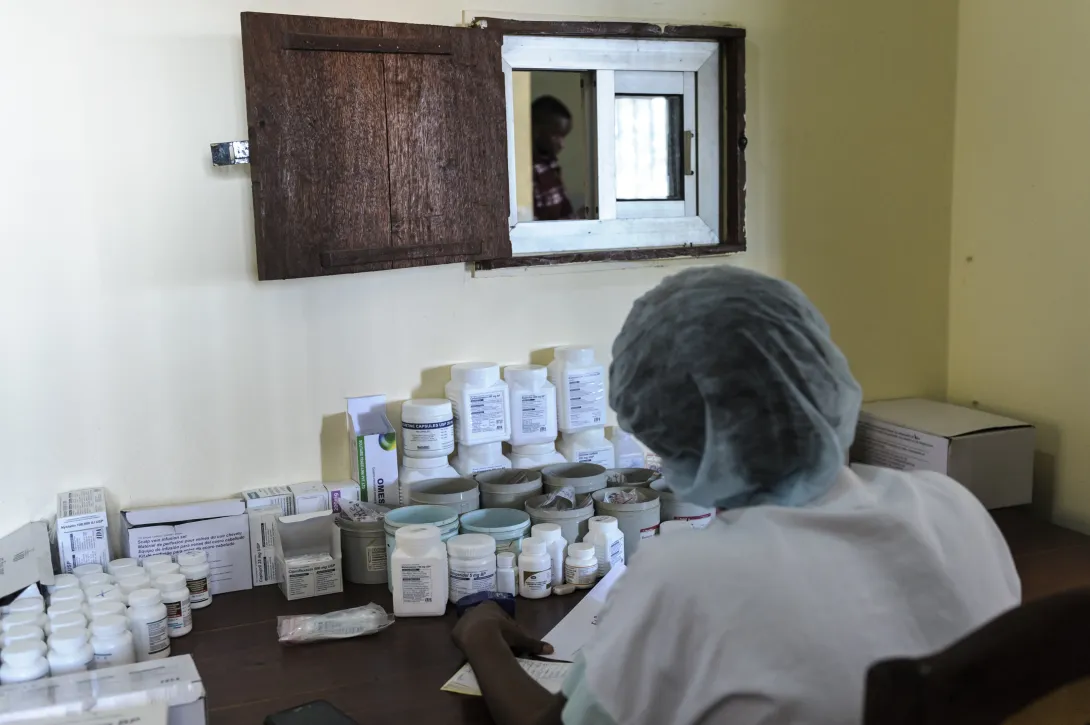
Our framework for action
Health is a prerequisite for human and economic development, playing a key role in social stability and global security. As the public development cooperation agency for Team France, we align our work with France and Europe’s strategic priorities for public health emergencies, specifically:
- France’s Global Health Strategy 2023–2027, which emphasises universal health coverage (UHC), human rights advocacy and the One Health approach (human, animal and environmental health)
- The United Nations’ Sustainable Development Goals (SDGs), in particular SDG 3, which aims to “empower people to live healthy lives and promote well-being at all ages”
- France’s international commitments to strengthening health systems and combating major pandemics
For further reading
Our services in this area
From emergency response to future resilience, all our projects aim to provide long-term capacity building. They foster coordination between stakeholders such as ministries, institutes and regional authorities. They also support post-crisis recovery and improve the organisation of national public health systems. Our range of services dedicated to health emergencies includes the following:
- Advice and support
- Design and implementation of public health projects
- Deployment of technical experts
- Evaluation and leveraging of project impact
Resources for download
FAQs
For more about managing public health emergencies
A public health emergency is a serious, sudden, unusual or unexpected situation that has significant health consequences and requires immediate action to limit its spread, impact or risks. Climate change, deforestation, global mobility and rapid urbanisation all increase the risk of public health emergencies.
Expertise France supports its partner countries in setting up preparedness, warning, epidemiological surveillance and multi-sector coordination plans through digitalisation, training, deployment of personnel and long-term funding for these systems.
According to the WHO, a public health emergency of international concern (PHEIC) is an “extraordinary” situation that threatens the public health of other states because of the risk of the disease spreading internationally. Critical situations of this magnitude require a coordinated international response. This definition is given in the International Health Regulations (IHR, 2005).
Recent examples include Covid-19, the Ebola virus and the Zika virus. PHEICs require the activation of comprehensive coordination and assistance mechanisms. Yet only 20% of countries are fully prepared to address such crises (according to the WHO).
Expertise France supports its partner countries in anticipating risks, setting up preparedness and coordination mechanisms, and strengthening laboratories and institutional capacities.
The One Health approach is a framework for action that recognises that human and animal health are interdependent and contingent on environmental ecosystems. It aims to prevent zoonotic diseases, combat antimicrobial resistance and ensure long-term management of environmental health risks.
Expertise France promotes the One Health approach by including the following aspects in its projects:
- Prevention and control of human and animal infections
- Strengthening of diagnostics and surveillance laboratories
- Management of food- and environment-related risks
The One Health approach also underpins France’s Global Health Strategy 2023–2027, particularly as regards health crises and climate challenges.
Our projects
SUCCESS - Scale Up Cervical Cancer Elimination with Secondary prevention Strategy
Ongoing
2019 - 2026
Funders : Unitaid
Key figures in 2024
- 2,260 facilities received support in delivering healthcare services
- 11,767 staff received training to improve their skills/knowledge of the delivery of healthcare services

